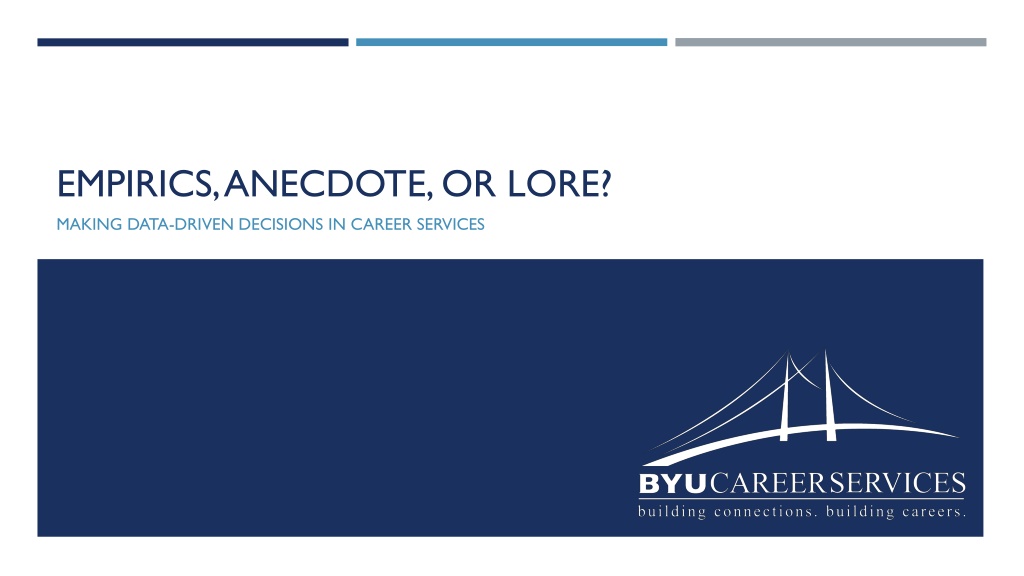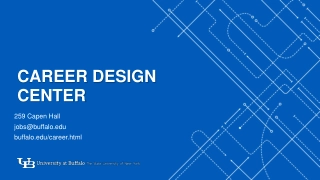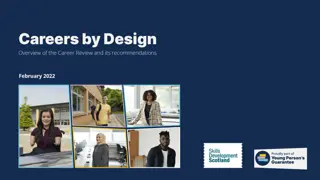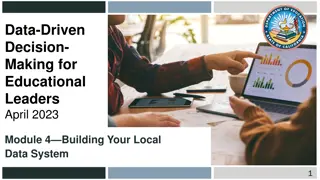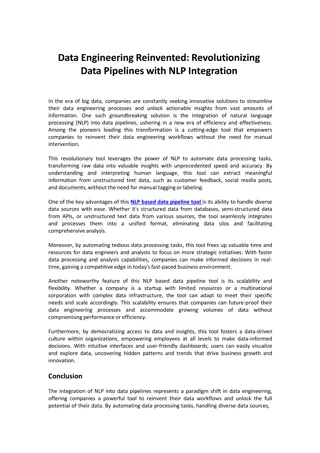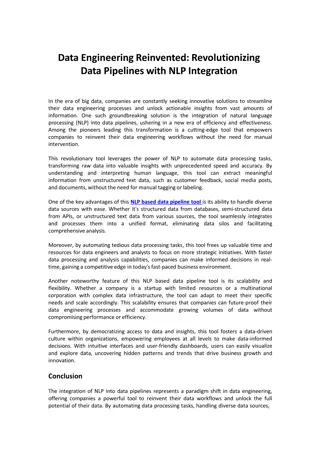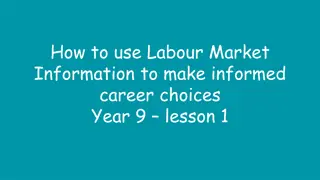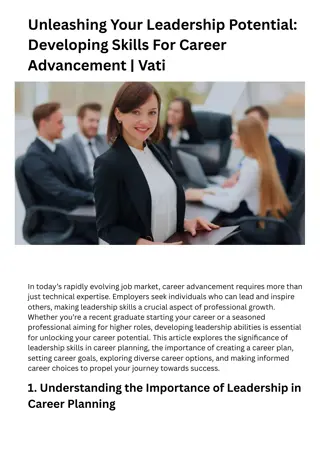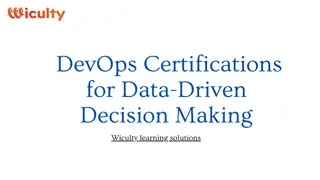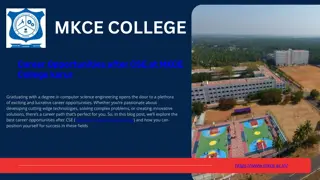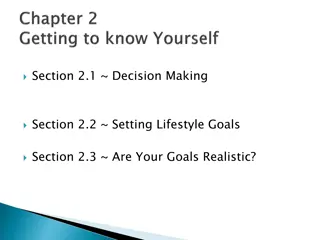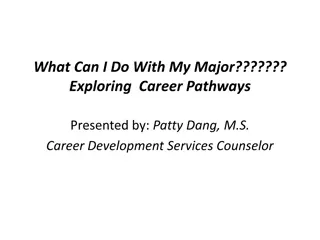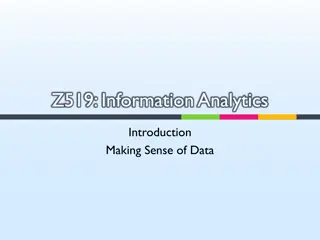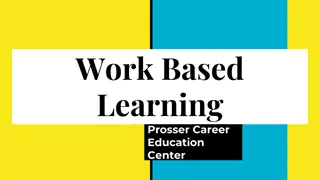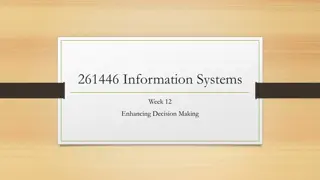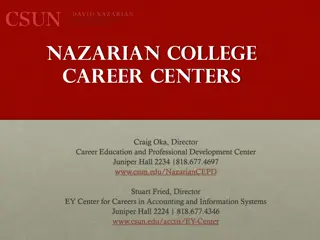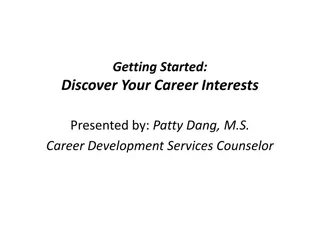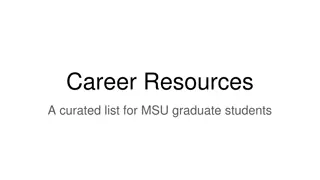Making Data-Driven Decisions in Career Services
Explore the process of making data-driven decisions in career services by considering personal opinions, anecdotal experiences, occupational traditions, and empirical evidence. Delve into topics like the impact of religion on resumes, conducting research in sociology and psychology, and planning and executing experiments to gather data for informed decision-making in career advancement.
Download Presentation

Please find below an Image/Link to download the presentation.
The content on the website is provided AS IS for your information and personal use only. It may not be sold, licensed, or shared on other websites without obtaining consent from the author. Download presentation by click this link. If you encounter any issues during the download, it is possible that the publisher has removed the file from their server.
E N D
Presentation Transcript
EMPIRICS, ANECDOTE, OR LORE? MAKING DATA-DRIVEN DECISIONS IN CAREER SERVICES
INTRODUCTIONS Derek Jack: Associate Director, Career Advancement Monte Marshall: Associate Director, University Career Services Lisa Christensen: Associate Director, Career Advancement Michael Ricks & Jaclyn Foster: Research Assistants You ?
HOW DO YOU DECIDE WHAT ADVICE TO GIVE? 4 foundations for decision-making: Personal Opinions Anecdotal Experiences Occupational Traditions Empirical Evidence
RELIGION ON RESUMES: TABOO? Derek s Story UCONN Study Getting Funding Research Assistants
CONDUCTING RESEARCH Articulate the question you want answered If we could answer one question, what would it be? Search for relevant research already in existence What field of research may be useful? Sociology, Psychology, and Human Resources Management Do the findings apply well to my question? Perform additional investigation when necessary What resources do we have? What help will we need? How can we design a study that will answer our question?
THE EXPERIMENT Planning the Project Creating Resumes Applying for Jobs Gathering Data Identifying Results
ADDITIONAL EXPERIENCE Volunteer (Full time) Non-Profit Organization, Concepcion, Chile Jan/2009 - Jan/2011 3 MISSIONARY SAMPLES Served in many volunteer leadership positions that included training new volunteers in a one-on-one setting, as well as managing groups of 6-20 volunteers Supervised 15 volunteers, increasing our productivity by 100% and surpassing the 11 other volunteer groups in Concepcion OTHER EXPERIENCE Jan 2013-Jan 2015 Maintained an independent and efficient work schedule for two years, averaging over 65 hours per week with zero sick days Increased effectiveness of 22 volunteers through weekly trainings and following-up, with a focus on preparing them to communicate well, set and achieve meaningful goals, and be able to train new volunteers Religious Organization Lima, Peru VOLUNTEER EXPERIENCE Full-Time Volunteer The Church of Jesus Christ of Latter-day Saints Taught literacy skills, family relations, and personal finance principles to more than 120 individuals Increased team effectiveness by providing training in individual communication, problem solving, goal setting, and strategy skills to 18 other volunteers 1/2011-1/2013 Oaxaca, Mexico
CONCLUSION What we would have done differently Moving forward
PRESENTER CONTACT INFORMATION Brigham Young University University Career Services 1-801-422-6535 ucs.byu.edu Derek Jack: derek_jack@byu.edu Monte Marshall: monte_marshall@byu.edu Lisa Christensen: lisa_christensen@byu.edu
